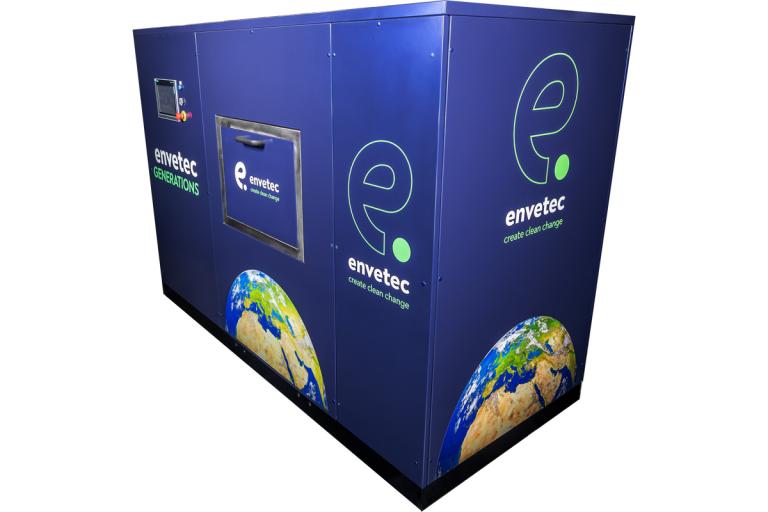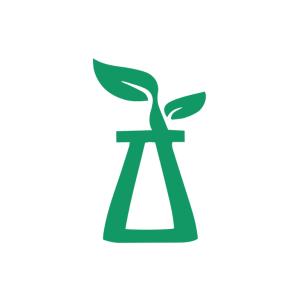Healthcare
The healthcare sector, whose mission is protecting people and promoting health, makes a major contribution to the climate crisis. Healthcare’s climate footprint is equivalent to approximately 4.4% of global net emissions. Changes to the climate and to the environment have direct and immediate consequences for patients, the public and for health systems in general. National and International health systems have publicly acknowledged this threat and have taken responsibility by committing to reaching carbon net zero, in response to the profound and growing threat to health posed by climate change. A key component of reaching Net Zero is to address the huge amount of waste that is produced by the healthcare sector, particularly biohazardous waste (also referred to as Regulated Medical Waste (RMW)).
There are several types of facility in the healthcare sector, which are commonly referred to as healthcare centres or medical centres. These healthcare facilities produce significant amounts of biohazardous waste as a byproduct of providing care, diagnosis and medication. The generated waste must be treated before disposal because it can cause illness, as well as environmental contamination and damage if left untreated. The most common methods of treatment are autoclaving, microwaving, or incineration. These prevalent treatment procedures are high-energy procedures.
Envetec have developed a novel clean technology called GENERATIONS that enables facilities to eliminate the current carbon intensive transport and thermal treatment processes traditionally involved in the management of biohazardous waste. Facilities can now send material to be recycled that otherwise would end up in landfill and/or incinerated. By doing so, healthcare facilities can lower their emissions related to waste by up to 90%.
About the Healthcare Industry
Pharmaceutical
The Pharma and Biopharma industry has had a dramatically positive impact on the world population. Extended life expectancy as well as improving quality of life has been the direct result of improved therapeutics in almost all facets of life.
The Pharma and Biopharma sector has led the way in pledging to become net zero manufacturers. Innovative solutions for waste, and in particular ‘Biohazardous Waste’ is a considerable challenge for Industry to achieve these ambitious goals. Throughout the heavily regulated process of delivering therapeutics, vast amounts of Biohazardous waste are produced. The traditional treatment methods of this waste are typically autoclaved or incinerated. Unfortunately, these practices use vast quantities of energy, are harmful to the environment and do not allow for precious resource recovery.
Envetec have developed a novel clean technology called GENERATIONS that enables facilities to eliminate the current carbon intensive transport and thermal treatment processes traditionally involved in the management of biohazardous waste. Facilities can now send material to be recycled that otherwise would end up in landfilled and/or incinerated. By doing so, Biotechnology and Pharmaceutical facilities can lower their emissions related to waste by up to 90%.
About the Pharmaceutical Industry
Medical Device
The medical technology industry plays a vital role in healthcare, but its operations can contribute significantly to the climate crisis. Biohazardous waste, a byproduct of research, development, and manufacturing, requires careful treatment to avoid environmental damage and public health risks. Traditional methods like incineration are energy-intensive, highlighting the need for sustainable solutions.
Envetec’s GENERATIONS technology offers a groundbreaking approach. By eliminating high-carbon transportation and thermal treatments, GENERATIONS enables medical technology facilities to recycle waste that would otherwise end up in landfills. This innovative solution empowers the industry to significantly reduce its emissions and contribute to a more sustainable future.
About the Medical Device Industry
Food & Beverage
The Food & Beverage industry has evolved from small localized production to globalized supply chains. This is transforming the food industry as regulators, food producers, sellers and consumers demand a more consistent approach to food safety and quality standards across geographies. Risks are increasing and maintaining oversight over food supply chains is becoming more challenging. The Food & Beverage sector makes a major contribution to the climate crisis. The agricultural based nature of the sector means carbon intensity is an ever-present challenge, the food industry alone is responsible for 34% of global CO₂ emissions. As well as agriculture, laboratory-based operations are also a key part of the sector, this comes with its own unique challenges. Facilities such as microbiology laboratories use 10 times more energy and 4 times more water than a standard work environment. A key component of the carbon footprint associated with life sciences is the amount of waste produced, particularly biohazardous waste. Thousands of tonnes of biohazardous waste are produced daily to test our food, ensuring consumer safety.
The generated waste must be treated before disposal because it can cause illness, as well as environmental contamination and damage if left untreated. The most common methods of treatment are autoclaving, microwaving, or incineration. These prevalent treatment procedures are high-energy consumers that result in a linear terminal process with limited to zero possibility for resource recovery.
Envetec have developed a novel clean technology called GENERATIONS that enables facilities to eliminate the current carbon intensive transport and thermal treatment processes traditionally involved in the management of biohazardous waste. Facilities can now send material to be recycled that otherwise would end up in landfill. By doing so, Food and Beverage facilities can lower their emissions related to waste by up to 90%.
About the Food & Beverage Industry
Veterinary
The Veterinary sector provides the highest levels of care to animals globally. Regardless of whether an animal is our family pet or a production animal, providing care to vulnerable animals is at the forefront of the Veterinary industry. Like most sectors, the Veterinary Industry struggles to provide this care whilst having zero impact on the environment. Ironically it is the very environment where animals inhabit that ultimately gets affected by climate change.
Large veterinary care providers, small clinics and laboratories have committed to obtaining Net Zero status, many with ambitiously accelerated timelines. A key component of reaching Net Zero is to address the huge amount of waste that is produced by the Veterinary sector, particularly biohazardous waste (also referred to as Regulated Waste (RMW)).
At every stage of the Veterinary process from Point of care, Animal Hospital/Clinic and the Animal Diagnostic Laboratory, vast quantities of Biohazardous waste are produced. This waste is usually comprised of Single use plastic, Sharps, Glass, or other forms of textiles.
The generated waste must be treated before disposal because it can cause illness, as well as environmental contamination and damage if left untreated. The most common methods of treatment are autoclaving, microwaving, or incineration. These prevalent treatment procedures are high-energy consumers that result in a linear terminal process with limited to zero possibility for resource recovery.
Envetec have developed a novel clean technology called GENERATIONS that enables facilities to eliminate the current carbon intensive transport and thermal treatment processes traditionally involved in the management of biohazardous waste. Facilities can now send material to be recycled that otherwise would end up in landfill. By doing so, Veterinary care facilities can lower their emissions related to waste by up to 90%.
About the Veterinary Industry


